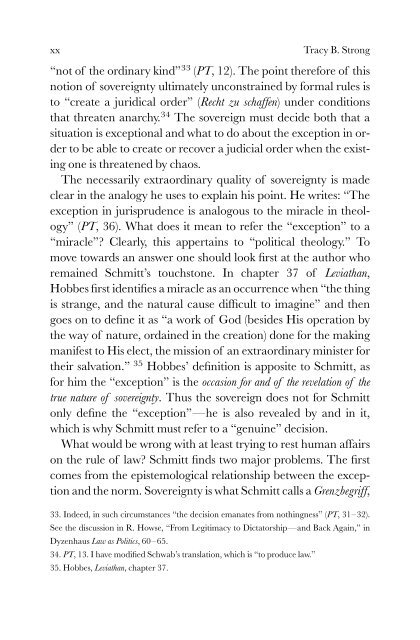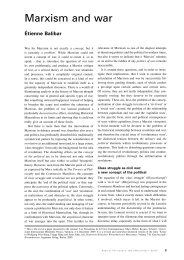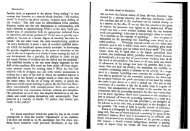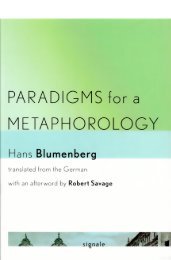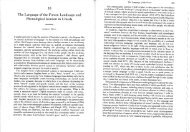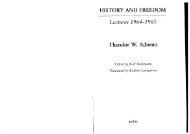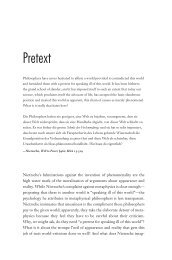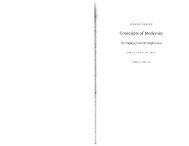Schmitt-Political Theology I.pdf - Townsend Humanities Lab
Schmitt-Political Theology I.pdf - Townsend Humanities Lab
Schmitt-Political Theology I.pdf - Townsend Humanities Lab
You also want an ePaper? Increase the reach of your titles
YUMPU automatically turns print PDFs into web optimized ePapers that Google loves.
xx Tracy B. Strong<br />
“not of the ordinary kind” 33 (PT, 12). The point therefore of this<br />
notion of sovereignty ultimately unconstrained by formal rules is<br />
to “create a juridical order” (Recht zu schaffen) under conditions<br />
that threaten anarchy. 34 The sovereign must decide both that a<br />
situation is exceptional and what to do about the exception in order<br />
to be able to create or recover a judicial order when the existing<br />
one is threatened by chaos.<br />
The necessarily extraordinary quality of sovereignty is made<br />
clear in the analogy he uses to explain his point. He writes: “The<br />
exception in jurisprudence is analogous to the miracle in theology”<br />
(PT, 36). What does it mean to refer the “exception” to a<br />
“miracle”? Clearly, this appertains to “political theology.” To<br />
move towards an answer one should look first at the author who<br />
remained <strong>Schmitt</strong>’s touchstone. In chapter 37 of Leviathan,<br />
Hobbes first identifies a miracle as an occurrence when “the thing<br />
is strange, and the natural cause difficult to imagine” and then<br />
goes on to define it as “a work of God (besides His operation by<br />
the way of nature, ordained in the creation) done for the making<br />
manifest to His elect, the mission of an extraordinary minister for<br />
their salvation.” 35 Hobbes’ definition is apposite to <strong>Schmitt</strong>, as<br />
for him the “exception” is the occasion for and of the revelation of the<br />
true nature of sovereignty. Thus the sovereign does not for <strong>Schmitt</strong><br />
only define the “exception”—he is also revealed by and in it,<br />
which is why <strong>Schmitt</strong> must refer to a “genuine” decision.<br />
What would be wrong with at least trying to rest human affairs<br />
on the rule of law? <strong>Schmitt</strong> finds two major problems. The first<br />
comes from the epistemological relationship between the exception<br />
and the norm. Sovereignty is what <strong>Schmitt</strong> calls a Grenzbegriff,<br />
33. Indeed, in such circumstances “the decision emanates from nothingness” (PT, 31–32).<br />
See the discussion in R. Howse, “From Legitimacy to Dictatorship—and Back Again,” in<br />
Dyzenhaus Law as Politics, 60–65.<br />
34. PT, 13. I have modified Schwab’s translation, which is “to produce law.”<br />
35. Hobbes, Leviathan, chapter 37.


